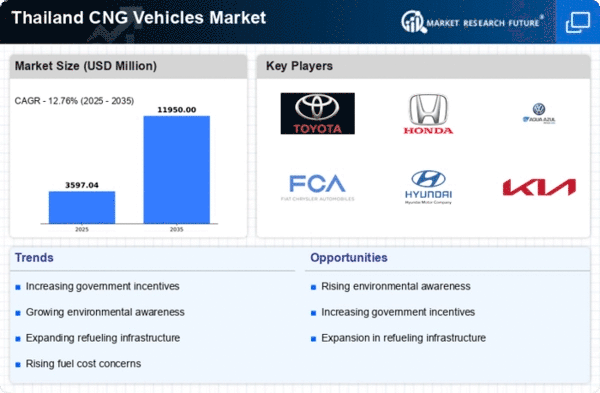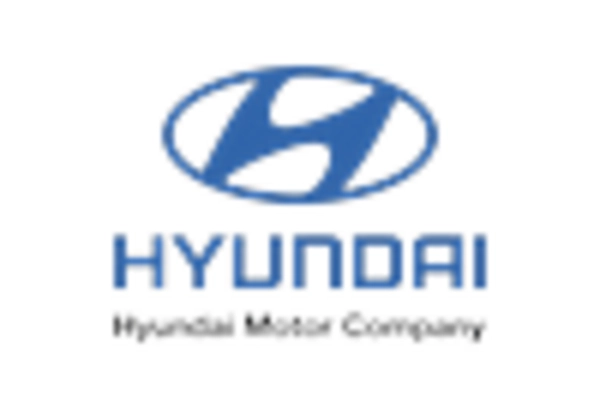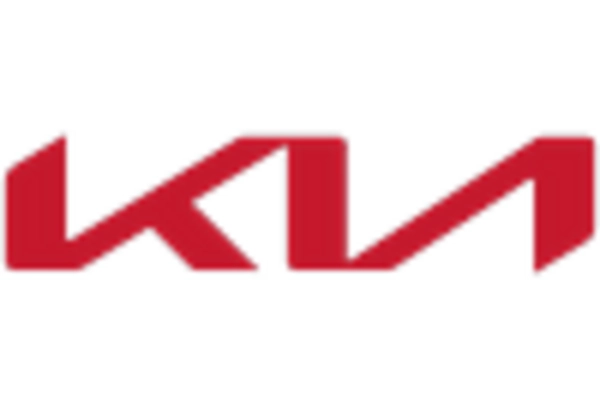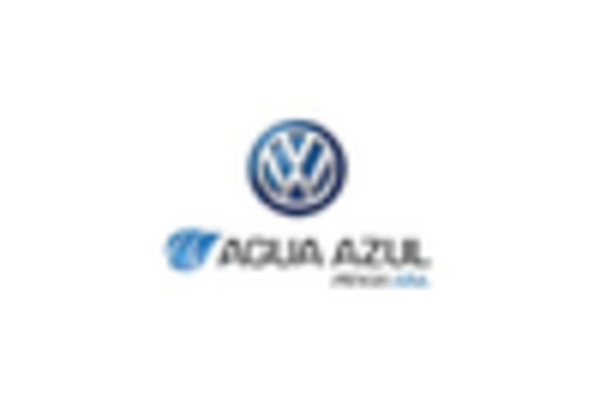Economic Viability of CNG
The economic viability of CNG as a fuel source plays a crucial role in shaping the cng vehicles market in Thailand. With fluctuating oil prices, CNG has emerged as a cost-effective alternative for both consumers and fleet operators. The price of CNG is generally lower than that of gasoline and diesel, which can lead to substantial savings in fuel costs. In Thailand, the average price of CNG is approximately 15% lower than that of gasoline, making it an attractive option for budget-conscious consumers. Additionally, the lower maintenance costs associated with CNG vehicles further enhance their appeal. This economic advantage is likely to stimulate demand for CNG vehicles, thereby contributing to the growth of the cng vehicles market in the region.
Environmental Regulations
The cng vehicles market in Thailand is significantly influenced by stringent environmental regulations aimed at reducing air pollution and greenhouse gas emissions. The Thai government has implemented various policies that promote the adoption of cleaner fuel alternatives, including compressed natural gas (CNG), which is a cleaner alternative to traditional fuels. As a result, the market is witnessing a shift towards CNG vehicles, which are perceived as a more environmentally friendly option compared to traditional gasoline and diesel vehicles. The government aims to reduce carbon emissions by 20% by 2030, which is likely to drive the demand for CNG vehicles. This regulatory framework not only encourages manufacturers to invest in CNG technology but also incentivizes consumers to transition to cleaner vehicles, thereby enhancing the overall growth of the cng vehicles market in Thailand.
Technological Advancements
Technological advancements in CNG vehicle design and performance are driving innovation within the cng vehicles market in Thailand. Manufacturers are increasingly investing in research and development to enhance the efficiency and reliability of CNG vehicles. Innovations such as improved fuel injection systems, lightweight materials, and advanced engine technologies are making CNG vehicles more competitive with traditional fuel options. Furthermore, the integration of smart technologies, such as telematics and real-time monitoring systems, is enhancing the user experience and operational efficiency of CNG vehicles. As these advancements continue to evolve, they are likely to attract more consumers and businesses to the cng vehicles market, fostering a more robust and dynamic industry landscape.
Rising Fuel Efficiency Standards
Rising fuel efficiency standards in Thailand are influencing the cng vehicles market by pushing manufacturers to develop more efficient vehicles. The government has set ambitious targets for fuel economy, which are expected to become increasingly stringent in the coming years. These standards are designed to reduce fuel consumption and emissions, thereby promoting the use of alternative fuels like CNG. As a result, automakers are likely to focus on producing CNG vehicles that meet or exceed these efficiency benchmarks. This trend not only aligns with environmental goals but also appeals to consumers seeking economical and sustainable transportation options. Consequently, the rising fuel efficiency standards are expected to bolster the growth of the cng vehicles market in Thailand.
Government Support for Infrastructure Development
The development of CNG refueling infrastructure is a critical driver for the cng vehicles market in Thailand. The government has recognized the need for a comprehensive refueling network to support the growing number of CNG vehicles on the road. Investments in CNG stations are being prioritized, with plans to increase the number of refueling points across the country. Currently, Thailand has over 300 CNG refueling stations, and this number is expected to grow as the government collaborates with private sector stakeholders. This expansion of infrastructure not only facilitates easier access to CNG fuel but also reassures potential consumers about the availability of refueling options, thereby encouraging the adoption of CNG vehicles and contributing to the overall growth of the market.

















